ABOUT
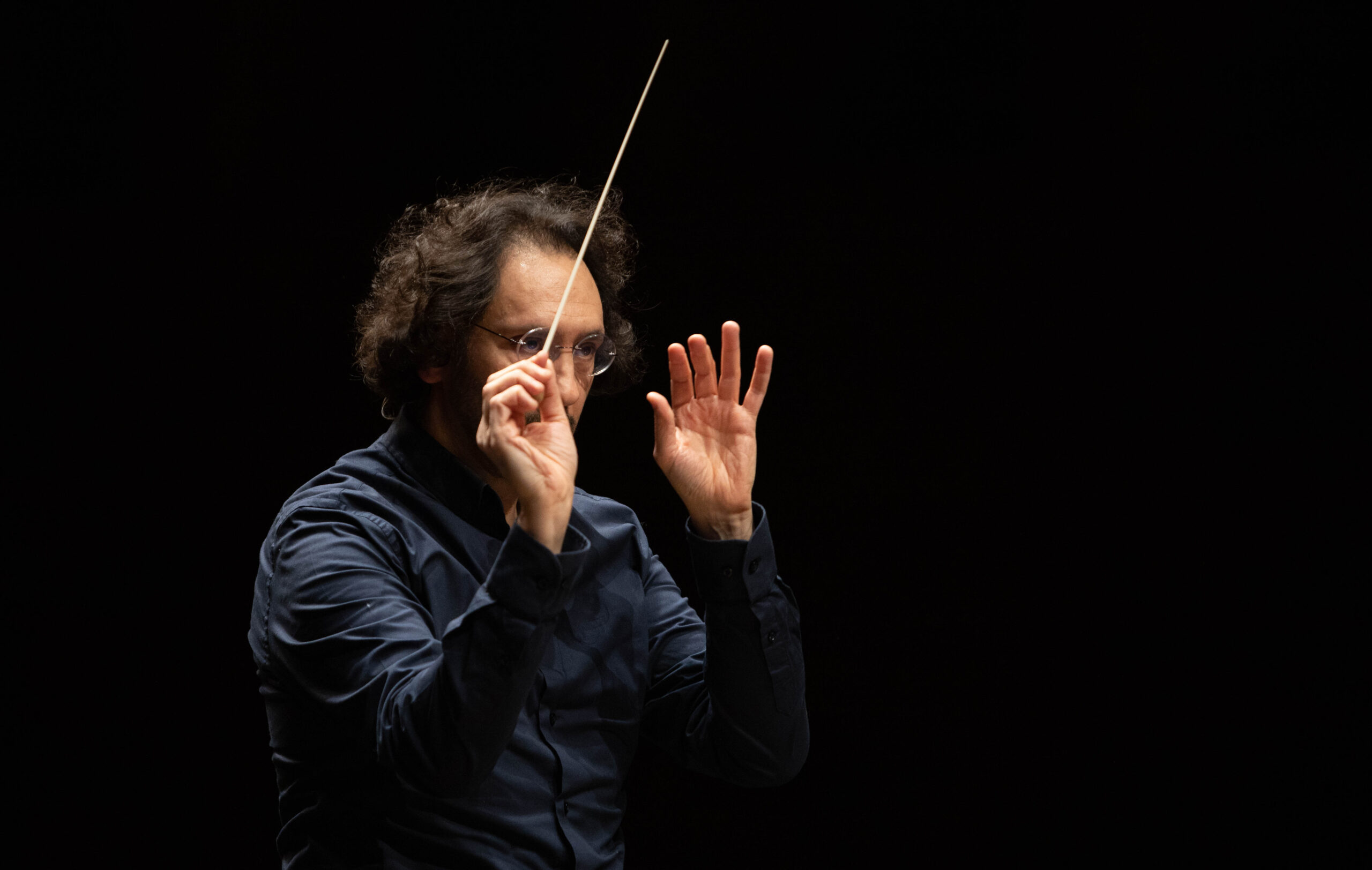
With a career spanning over twenty years between composition, conducting and artistic curating, Nuno Côrte-Real (b. 1971), is one of the leading musicians of Portuguese classical music.
Quoting musicologist Rui Vieira Nery, he is a “composer with creative freedom, challenging all current stylistic labels (…) in full production and full consecration, always with the capacity to involve us emotionally, very healthy and very pure, in his own and original way”. Côrte-Real have won, consecutively, the prize for Best Classical Music Work of the Portuguese Society of Authors, in 2018 and 2019, with the song cycle “Now Every Thing Changes”, and the opera bufa “Bandit Song”, respectively. His CD, “Tremor” (Ars Produktion 2021), has been nominated in five categories at the Opus Klassiek Awards.
In 1998 he presented in Fundação Calouste Gulbenkian – Encontros Acarte – the music theatre show “O Sentimento dum Ocidental”, enthusiastically received by the Foundation and music critics.
Among his most important premieres are the opera “Banksters”, at the Portuguese National Opera Theatre, the chamber opera “A Montanha”, at Gulbenkian Foundation, Lisbon, “7 Dances to the Death of the Harpist”, at the Kleine Zaal of the Concertgebouw in Amsterdam, “Concerto Vedras”, at St. Peter’s Episcopal Church, in New York, “Novíssimo Cancioneiro”, at the Siglufirdi Festival in Iceland, “Andarilhos” – ballet music, at Casa da Música in Oporto, and “Kind of concerto” – Concerto for Tuba and Orchestra, with the Orquesta Sinfónica de Castilla y León, Spain. In December 2022, after an invitation from the most famous Portuguese religious monument, Mosteiro dos Jerónimos (Jerónimos Monastery), in Lisbon, he conceived, conducted and directed the closure concert of the fifth centenary of the death of King D. Manuel (1522-2022), with the orchestra and choir of São Carlos National Opera Theatre, light design by Nuno Meira, and a sound installation by Süse Ribeiro, one of the most complex and grand events held in the Church of the Monastery.
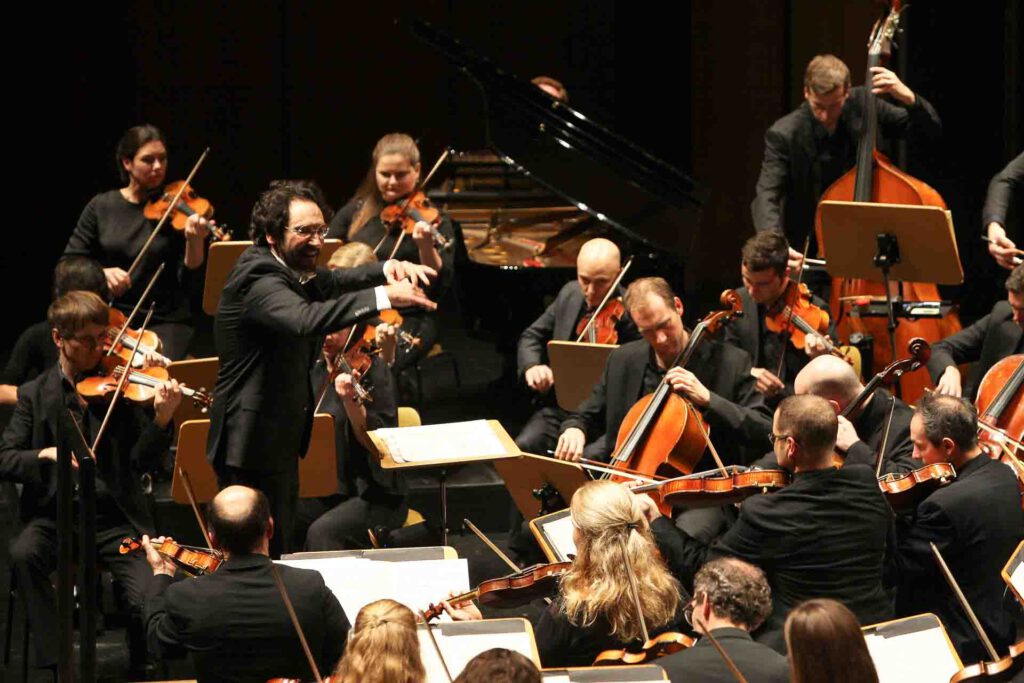
His discography includes albums edited nationally and internationally in various musical genres and several renowned labels, such as “Volupia” (Numérica 2012), “Mirror of the Soul” (Odradek 2016), “Agora Muda Tudo” (Odradek 2019), “Cante” (Odradek 2020), “Time Stands Still” (Artway Records 2020), and “Hukvaldy Cycle” (Naxos 2021). In the scenic world, Nuno Côrte-Real has worked with some of the leading names in opera, theater, literature and film in Portugal and abroad, both as conductor and composer. In 2022, his original soundtrack for the film “Terra Nova” (directed by Artur Ribeiro) has been nominated for the Portuguese Cinema Prizes “Sophia”. In an ascending international career as a conductor, Nuno Côrte-Real has worked with Mahler Chamber Orchestra, Orquestra Sinfonica di Milano, Orquesta Sinfonica de Castilla y León, Symphonic Orchestra of the Hungarian State Opera, Orquestra Sinfónica Portuguesa, Orquesta Ciudad de Granada, Orquestra dela Toscana, Orquestra Metropolitana de Lisboa, Ensemble Orchestral Contemporain, among many others, besides to numerous projects with Ensemble Darcos. Additionally, he has worked with internationally renowned soloists such as Shlomo Mintz, Ann Peterson, Nicola Ulivieri, Mats Lidström, Ana Quintans, Artur Pizzaro, Elisabete Matos, António Rosado, among many others.
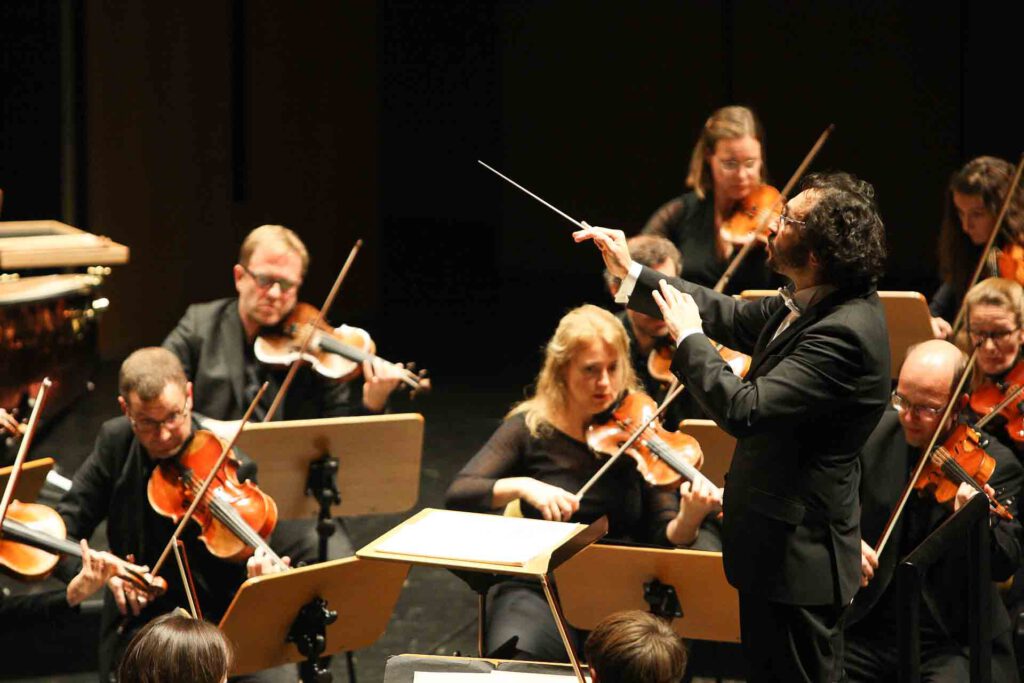
Nuno Côrte-Real is the founder and musical director of Ensemble Darcos, a chamber music group dedicated to the interpretation of his music and the great European repertoire, and he is the artistic director of Temporada Darcos, one of the most prestigious Portuguese international festivals of classical music. He was a scholarship holder of the National Center of Culture, and in 2003 was awarded the Medal of Cultural Merit of Torres Vedras City Council. Côrte-Real works regularly with the Portuguese Symphonic Orchestra and the Choir of São Carlos National Opera Theatre, in Lisbon.
Nuno Côrte-Real is a leading figure in the universe of contemporary music.
His path as a composer reveals, from an early age, an independent and unsubmissive posture in relation to dominant currents and established tastes.
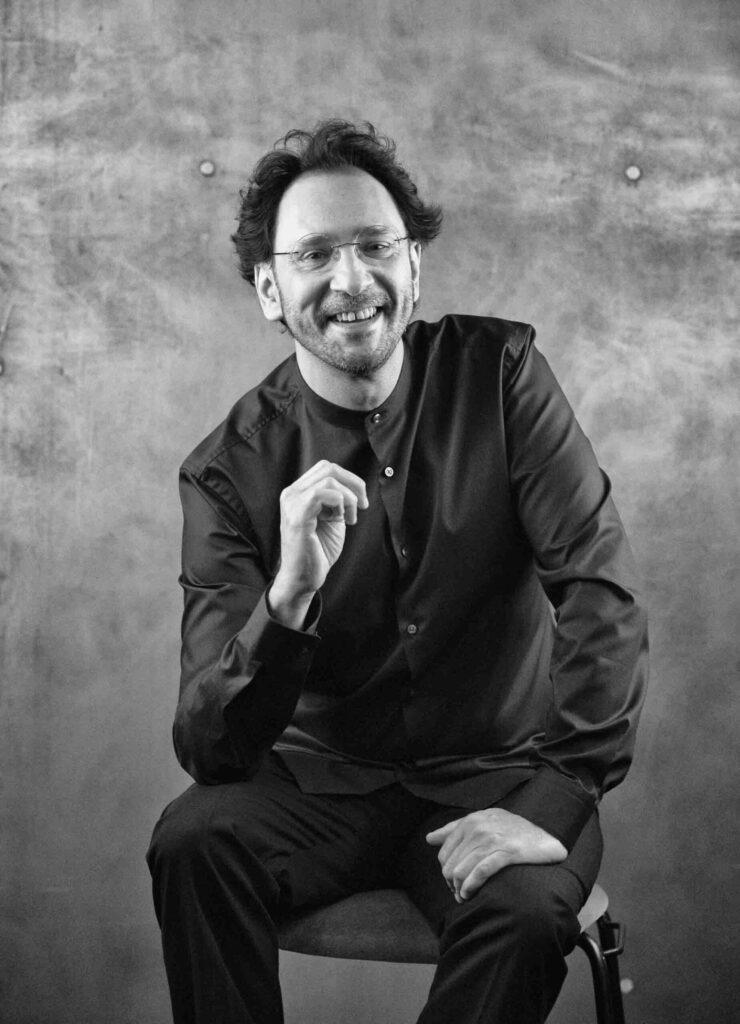
The plurality and syncretism that characterize his work denote an open and uncomplicated way of inhabiting music, in a clear break with the clichés, aesthetic determinism and elitism typical of contemporary music.
His music has sought to restore the emotive expressiveness and human and communicative dimension that the arid and hermetic art of the avant-garde suppressed. Melodic lyricism, an energetic and varied rhythmic writing, and a harmony that favors consonance are striking traits in his style, a synthesis style, eclectic in nature, but immediately recognizable.
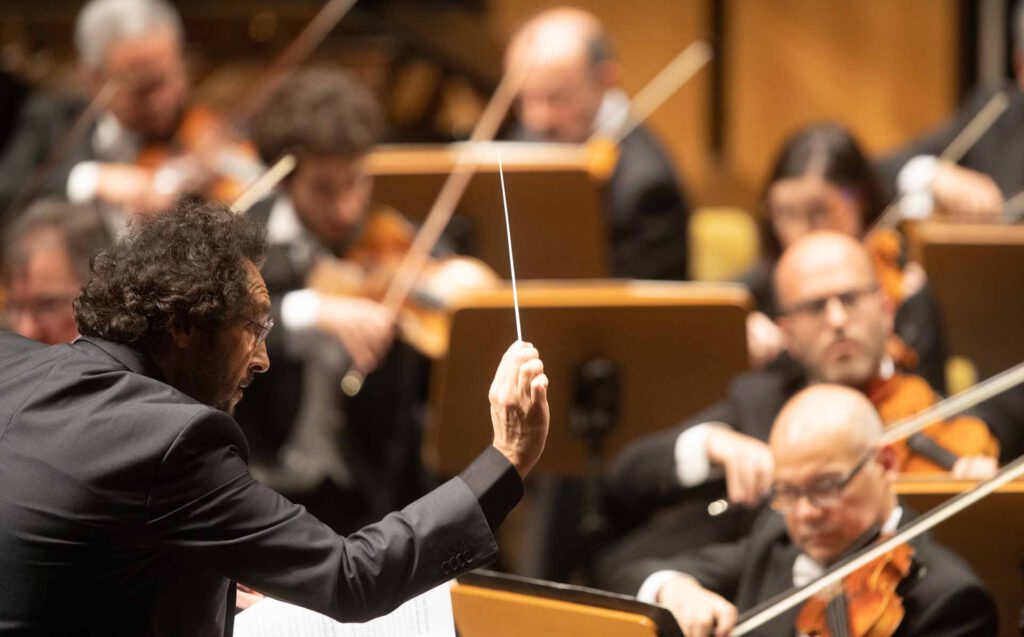
In many aspects, the language and musical grammar of Côrte-Real reveals a proximity to the neoclassical spirit. Neoclassical because he composes according to a dialectic of theme and variation and according to the principle of contrast; because he conceives music as discourse and develops it in a linear and directional time; sonority does not have an independent value, rhetorical rationality and discursive continuity prevail. It could be said, due to its objectivism and constructive principles, that we are facing a Stravinskian poetics, or, in other words, an Apollonian poetics, which favors measure and form, and leaves out the Dionysian element, ecstasy, the formless and the immeasurable. But his music has another complementary side, which we could call the psychological or dramatic side: and here predominates a romantic type of expressiveness, an exacerbated eloquence, a taste for contrasts, and for theatrical effects. It is no coincidence that opera is one of his favorite genres, but the dramatic nature of his musical conception ends up manifesting itself in all genres. A characteristic aspect of his production resides in his taste for stylistic symbiosis, the use of elements from other musical traditions, such as popular music, jazz or pop music. One can say that the composer seeks to remove contemporary music from its closed niche and revitalize it by approaching other sound universes.
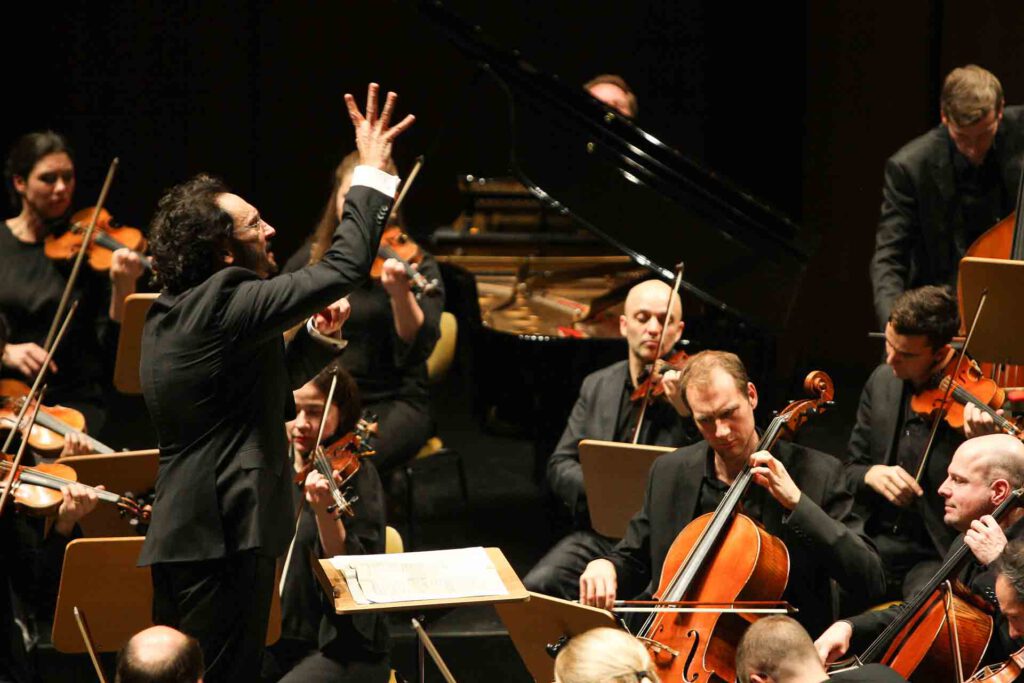
The plurality and syncretism that characterize his work denote an open and uncomplicated way of inhabiting music, in a clear break with the clichés, aesthetic His discographic catalog includes several works of an hybrid or symbiotic character that are nourished by other traditions. “Cante” (Odradek, 2019), based on popular Portuguese songs, the song cycle “Now everything changes” (“Agora Muda Tudo”) (Odradek, 2019), written for the famous jazz singer Maria João, “Time Stands Still” (Artway Records, 2020), an interesting recreation of John Dowland’s songs, and Tremor (Ars Produktion, 2021), which can be inscribed in the same creative line. His most recent production has shown a renewed interest in vocal genres, namely the song cycle, a field where the composer’s umbilical relationship with Portuguese poetry and culture is particularly evident. Among his numerous scores based on or inspired by Portuguese literature, some resulted from close collaboration with contemporary poets such as Vasco Graça Moura, José Luís Peixoto or Pedro Mexia